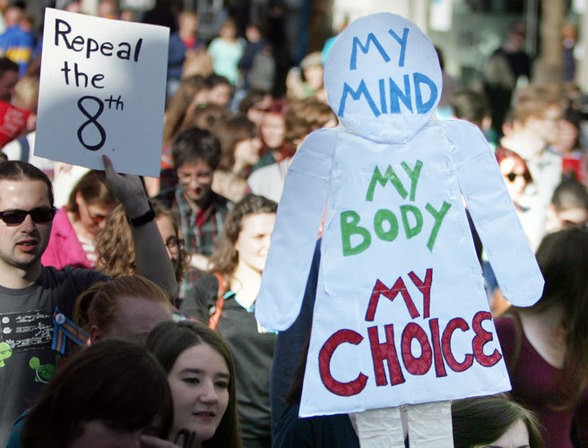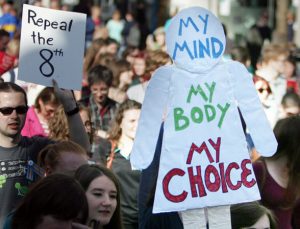Irish women continue to fight for their reproductive rights

Although the Republic of Ireland is a modern, western European country, with liberal values and an improving economy its female reproductive rights can be compared to those in countries such as Haiti, Somalia, Brazil, Iran, and Uganda. Ireland has the strictest abortion laws in Europe, apart from Malta. Abortion is considered illegal and is punishable with a 14-year prison sentence. This is because of the eighth amendment in the Irish constitution; where it states that the life of an embryo or fetus is equal to the life of the mother. There was a change made in 1992 when the Supreme Court passed a ruling that a termination could be allowed if the mother’s life was in immediate danger. However, there were legal uncertainly regarding the exact circumstances where it was permitted.

In recent years this has led to the violation of human rights, beginning in 2012 with the death of an Indian woman named Savita Halappanavar. Savita was 17 weeks pregnant when she died in University Hospital Galway after what was interpreted as complications of a septic miscarriage but was later revealed to be an E- coli infection. She was told the baby would not survive but was denied an abortion because exceptions to the eighth amendment had not been clarified by legislation. Savita was also told by a nurse that Ireland is a Catholic country and abortions were forbidden. The baby was delivered still born on the 24th October and four days later Savita also passed away.
Had Savita been in India she would have been allowed the termination and would have survived. Her husband won a legal battle with Health Service Eire claiming her right to life had been breached and she had been medically neglected. There was a large international response and national outrage. Pro-choice rallies were held, spurring the government to introduce the Protection of Life During Pregnancy Act 2013 making the circumstances legally clear when a termination is allowed. However, this act was criticized for being too limited.

At the moment if an Irish woman seeks an abortion she can only be treated if she travels abroad; usually going to England, Scotland or sometimes the Netherlands. In 2016, 3265 women travelled to the UK illegally to have abortions and this figure may be higher as many women give fake British addresses. If a woman does not have the economic means to travel, illegal abortion pills can be purchased online; these are often unsafe and can have many negative side effects or more often simply do not work. The women who suffer most under these laws are those who are those too poor to travel, too young to know or too ashamed to tell. The stigma associated with abortions means that woman keep it secret and fly home immediately afterwards as not to lose a day at work. This causes many mental health issues but because it involves an illegal activity these women are too afraid to seek professional help.
In 2016, a citizen’s assembly was organized for the public to discuss pressing political issues, the first four days were devoted to the repeal of the eighth amendment and later an extra day had to be added. On the 20th of September this year, the results were presented to the Irish government. They decided to hold a referendum on the issue in the year 2018. There will be major campaigning from both sides, up until the referendum.
In Ireland, change happens slowly, as divorce was only legalized in 1996 and same sex marriage in 2015. But since women’s lives are at risk, should there be more pressure put on Ireland from our international society, to comply with Human rights norms?



